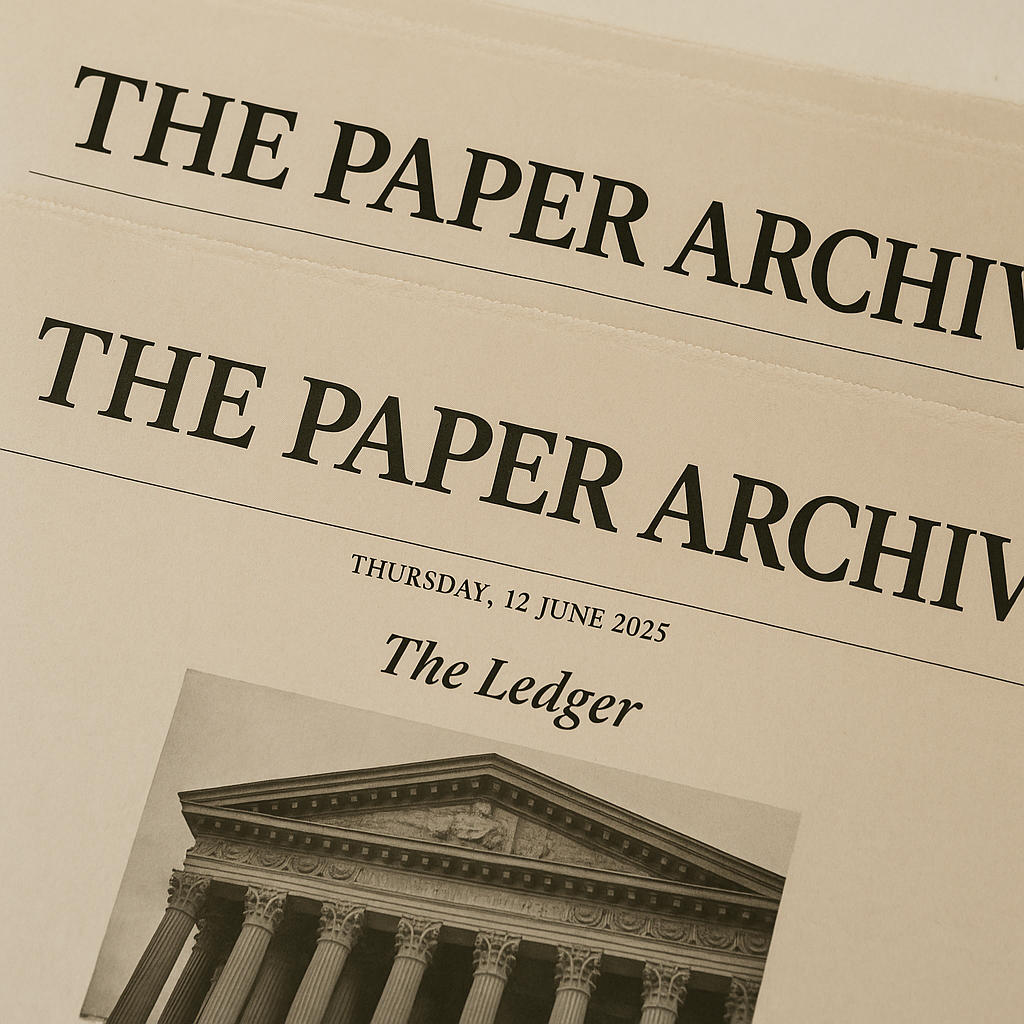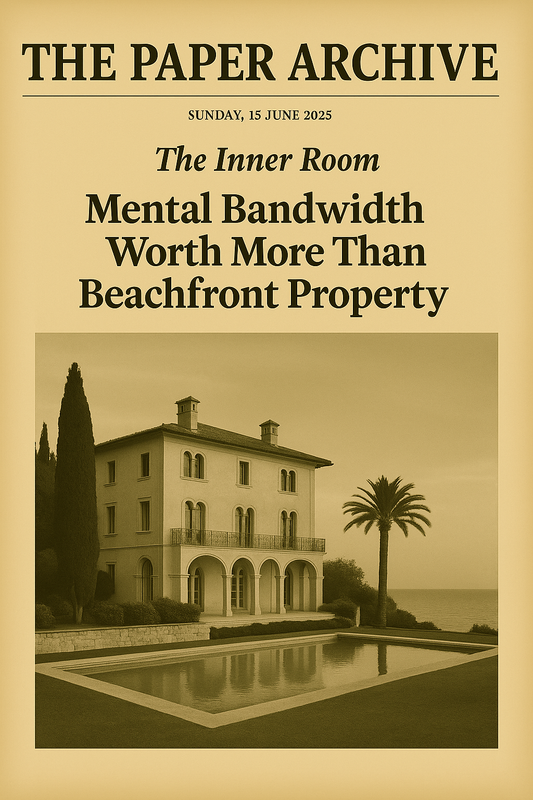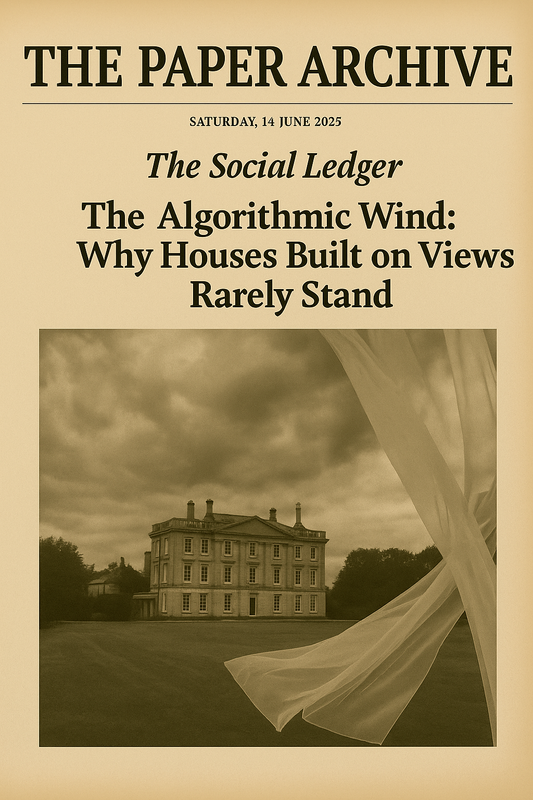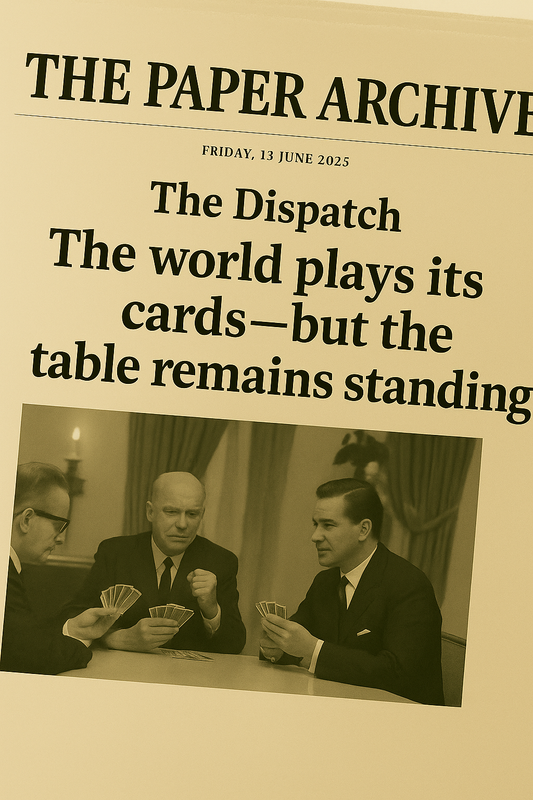When Finance Cools, Where To Play?
Share
The Ledger - 12 JUNE 2025
Imagine the global financial markets today not as a blitz of chess-masters plotting checkmate, but as a gentle croquet match on a manicured Edwardian lawn. The mallets swing, the wickets clink, and everyone is perfectly polite. This is the current landscape: the S&P gliding modestly higher, bond yields bowing gracefully, and tech titans like Oracle taking their victory lap, not with fanfare, but with the faintest arch of an eyebrow.
There’s a lesson in this civility. Historically, when markets appear to “do nothing,” they are often busy laying the turf for the next act. Think of the summer of 1913, when the world’s elite holidayed in Biarritz, sipping champagne, serenely unaware that the machinery of the First World War was being wound up behind the scenes. Or the long, flat calm of the mid-1990s—when most investors grumbled about “sideways markets,” just before the internet era detonated beneath their feet.
The absence of visible drama is not a signal to nap, but to listen more closely. In these quiet stretches, capital quietly changes hands, alliances are forged in private rooms, and new sectors are seeded, long before the ticker tape starts spinning again.
On days like today, headlines sound like a butler announcing, “Nothing to report, ma’am,” as if the silver is polished, the ledgers balanced, and all is well in the manor. Yet the real story is always below stairs, where the machinery of wealth and power never truly rests.
Consider the bond market, where yields tiptoe downwards, a bit like the staff lowering their voices after midnight. The world’s most cautious capital, quietly anticipating a future rate cut, is already adjusting the furniture for the next season. It’s the financial equivalent of a country house staff prepping the ballroom for a party before the guests have even received their invitations.
Meanwhile, the AI rally is not the stuff of futuristic novels but of infrastructure. Tech leaders, Oracle among them, are less revolutionaries now than the new railway barons. Their tracks are digital, but the result is the same: whoever controls the rails, controls the cargo, and eventually, the culture. This has always been the story, from the Rothschilds wiring Europe with telegraph lines to Morgan’s steel quietly underpinning a century of American ambition.
These are not fireworks, but foundations. The excitement, for those who play the long game, is less about today’s news and more about recognizing when the architecture of the world is being rearranged in silence.
So, what does a civilized croquet match, a discreet bond market shuffle, and a tech empire laying digital railroads mean for those with aspirations above mere spectatorship?
The seasoned player knows: the game is never decided in the fireworks, but in the intervals between. The world’s greatest fortunes and most influential legacies are shaped during the lull, not the stampede. Rockefeller expanded in recessions; the Medicis bankrolled a Renaissance during plagues; old-money heirs quietly increased their positions while the parvenus watched the headlines.
If today feels slow, it’s not a pause, it’s a strategic luxury. Now is the time to study the board, notice which pieces are being quietly maneuvered, and prepare to step where others are still gazing at the scoreboard.
Ask yourself: What relationships need cultivation while the world is calm? What skills, assets, or alliances can be fortified before the next unpredictable gust?
History favors those who make their moves during the hush. Let others chase sensation; you’ll be the one quietly setting the next terms.
“The Ledger does not offer investment advice or forecast with certainty; it offers perspective. The real value is in learning to read the room, understand the game, and resist the temptation to move with the crowd. Bond markets, like all markets, reward preparation and patience, not hasty bets on headlines or metaphors. Let your strategy be as measured as your curiosity.”







